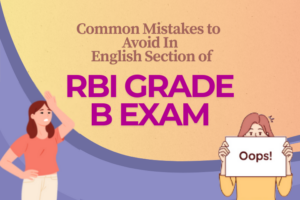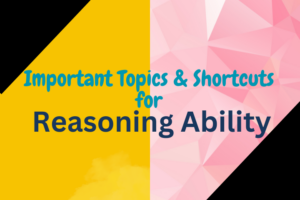
SCOTT PRUITT, the administrator of the Environmental Protection Agency (EPA), is still standing after a fusillade of scandals that would have felled a lesser cabinet member. As soon as he took up his post, Mr Pruitt lodged in a luxury flat owned by a lobbyist, paying $50 per night only on the evenings he slept there—a remarkable bargain for Capitol Hill. Mr Pruitt denied any impropriety, but it emerged this week that he had met his landlord’s husband, also a lobbyist representing a pork manufacturer before the agency, contradicting his earlier claims. Mr Pruitt struck similar sweetheart deals in his previous job as attorney-general of Oklahoma. But since coming to Washington, other furors show that Mr Pruitt has let his newfound prominence get to his head. He spent lots of taxpayer cash on first-class airline tickets, tripled the size of his security detail (which accompanied him on holiday to Disneyland) and installed a soundproof phone booth in his office, costing $43,000—which the Government Accountability Office says violated federal spending laws. At one point, Mr Pruitt reportedly tried using his motorcade’s flashing lights and sirens to expedite a trip to dinner at Le Diplomate, a once-trendy French restaurant in Washington. There are at least six current investigations into his conduct, and four Republican congressmen have called for his resignation. Given all that, it is easy to overlook what Mr Pruitt is actually doing at the helm of the EPA. On April 24th he unveiled a new policy which would prohibit the agency from using studies backed by confidential data, like medical records, when drafting environmental regulations. He has removed scientists affiliated with universities from the department’s scientific advisory committees. Staff morale has plunged. This is the culmination of a decades-long campaign against the “secret science” underpinning environmental regulation. In 1993 researchers at Harvard published the “Six Cities study”, which definitively linked air quality to premature death using confidential medical records from 8,000 people. The study prompted the first regulations on fine particulate matter issued under the Clean Air Act in 1997. Manufacturers spent millions in an effort to dispute the science and called for release of the raw data, which the researchers, bound by a confidentiality agreement, refused. Today the findings are established science— and the rules they inspired will prevent more than 230,000 early deaths by 2020. Nevertheless, Lamar Smith, a Republican congressman who chairs the science committee, has subpoenaed the EPA for the underlying Six Cities data. He has also unsuccessfully sponsored a bill, dubbed the Honest Act, which would bar the EPA from issuing any new rules based on such studies. Mr Pruitt’s recently announced proposal would sidestep Congress and impose such a policy anyway. The consequences could be severe. The EPA cites 50,000 studies each year. The costs of redacting data that might identify people before publication could amount to $100m per year, according to an estimate by the Congressional Budget Office, crowding out an already squeezed research budget. Air-quality rules and pesticide limits rely on analyses of confidential medical records— which Mr Pruitt may now label as suspect and try to undo. The new policy is a costly solution in search of a problem. It is outlandish to think that scientists are engaged in a vast conspiracy to exaggerate the health consequences of water and air pollution using fabricated data. It is less likely still that a member of the public browsing through the agency’s website would discover the fraud that had eluded peer reviewers. Some critics have credibly claimed that the EPA inflates the benefits of environment rules and downplays the costs. But the agency already publishes the details of its maths in the form of regulatory impact analyses, often hundreds of pages long, which are available for public scrutiny. Replicability and transparency are vital to science. But, as 985 scientists wrote in a letter to Mr Pruitt, the proposed restrictions are “phoney issues that weaponise ‘transparency’ to facilitate political interference in sciencebased decision-making, rather than genuinely address either.”
1. Fusillade: (noun) : गोलीकांड
Meaning: a series of shots fired or missiles thrown all at the same time or in quick succession.
Synonyms: barrage, blitz, blitzkrieg, bombardment, cannonade, drumbeat, drumfire, flurry, hail, salvo, shower, storm, volley
Antonyms: dribble, drip, trickle
2. Bargain: (verb) : मोल-भाव करना
Meaning: negotiate the terms and conditions of a transaction.
Synonyms: accord, agreement, compact, contract, convention, covenant, deal, disposition, pact, settlement, understanding
3. Furor: (noun) : उत्तेजना
Meaning: an outbreak of public anger or excitement.
Synonyms: anger, angriness, fury, indignation, irateness, ire, mad, madness, outrage, rage, spleen, wrath, wrathfulness
Antonyms: delight, pleasure
4. Prominence: (noun) : शोहरत
Meaning: the state of being important, famous, or noticeable.
Synonyms: eminence, fame, renown, prestige, reputation, greatness
Antonyms: insignificance, unimportance, inferiority, depression, obscurity
5. Expedite: (verb) : शीघ्र, झटपट करना
Meaning: make (an action or process) happen sooner or be accomplished more quickly.
Synonyms: accelerate, assist, hasten, quicken, urge, promote
Antonyms: delay, retard, hinder,halt,block, cease
6. Plunge: (verb) : डुबकी लगाना
Meaning: push or thrust quickly.
Synonyms: descent, dive, spree, duck
Antonyms: ascent, rise, increase
7. Culmination: (noun) : चरम बिंदु
Meaning: the highest or climactic point of something, especially as attained after a long time.
Synonyms: acme, apex, apogee, capstone, climax, crescendo, crest, crown, head, height, high noon, high-water mark, meridian,pinnacle, summit, tip-top, top, zenith
Antonyms: bottom, nadir, rock bottom
8. Subpoena: (verb) : हाज़िरी के लिए अदालती हुक्म
Meaning: require (a document or other evidence) to be submitted to a court of law.
Synonyms: decree, mandate, summons, warrant, command
9. Redact: (verb) : संपादन करना
Meaning: censor or obscure (part of a text) for legal or security purposes.
Synonyms: alter, annotate, arrange, assemble, censor, publish, rearrange
Antonyms: disarrange, disperse, disorganize, disturb, scatter
10. Outlandish: (adjective): विचित्र
Meaning: looking or sounding bizarre or unfamiliar.
Synonyms: exotic, fantastic, glamorous , marvelous, strange
Antonyms: familiar, nonexotic, nonglamorous, unexotic, unglamorous




 IBPS Final Result 2025 Coming Out Tomorr...
IBPS Final Result 2025 Coming Out Tomorr...
 Simple Tips to Avoid Common Mistakes In ...
Simple Tips to Avoid Common Mistakes In ...
 Important Topics & Shortcuts for IDB...
Important Topics & Shortcuts for IDB...





